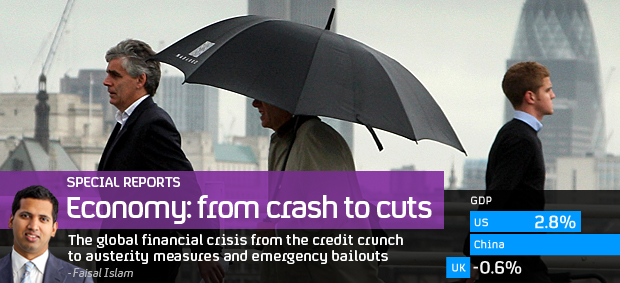RBS in red after Greek debt crisis
RBS announces half-year losses of £794m after writing off its exposure to Greek debt and putting aside money to compensate people who were mis-sold payment protection insurance.

The loss by 83 per cent state-owned bank covers the six months to 30 June, compared with a £1.1bn profit last year.
RBS was pushed into the red by the Greek write-off of £733m and an £850m provision to cover compensation for customers who were mis-sold payment protection insurance (PPI).
Speaking on the Today programme, RBS chief executive Stephen Hester said the bank’s restructuring was “going well”, adding: “We are getting risk down, the bad assets that have been dogging us from past years are coming down, and I feel comfortable with the way that part of the RBS plan is unfolding.”
He said ongoing problems in world banking created “head winds which will affect us in different ways”, including writing down RBS’s exposure to Greek debt.
He believed the turmoil on the markets over the last 24 hours, which saw RBS shares plummet yesterday, showed the 2008 financial disaster was “not a banking crisis” but “one of global economic imbalances”.
Mr Hester said: “The root of what’s going on and the nervousness hitting markets again is really about how we manage our economies both globally and individually. It is certainly a worrying time.”
Read more: Lloyds Banking Group posts £3.3bn loss
He demanded “confidence-giving measures” from governments to “address the economic issues rather than specifically banking issues”.
Mr Hester called for “calm and purpose” as governments and banks ride the storm, citing last week’s last-minute deal to raise the US debt ceiling as a bad example.
He said: “Those governments that have real economic issues need to deal with them decisively.
“The vision of what was going on in the US politically has been rather unedifying in recent times – an example of how not to deal with things.
“There are other issues certain countries in Europe need to deal with in terms of their own financing.
“Beyond government action to put each country’s house in order, areas like the eurozone need to give confidence to markets and their citizens that governments will play their proper role in providing stability and liquidity… to enable funding to go normally.”
